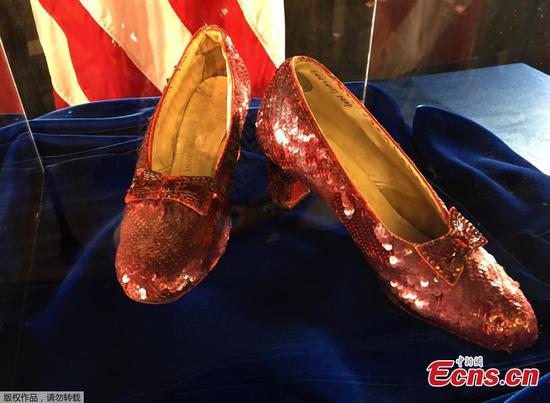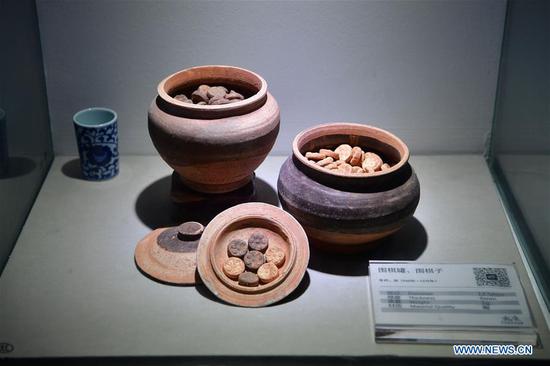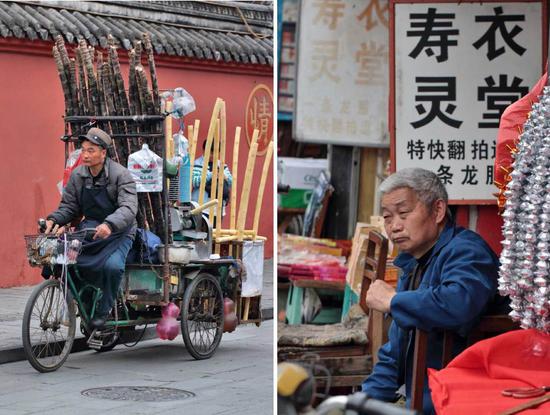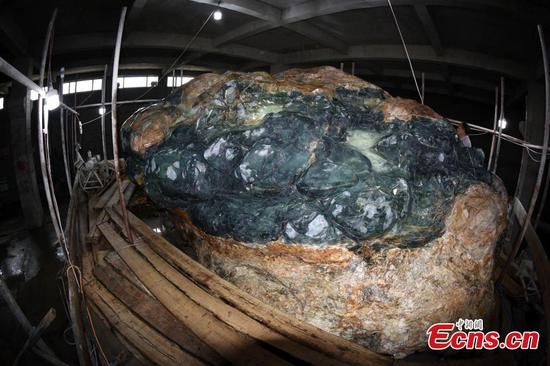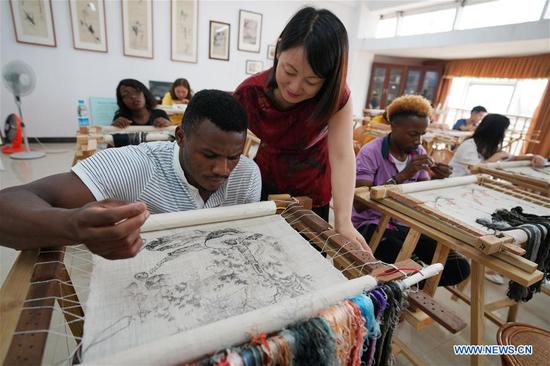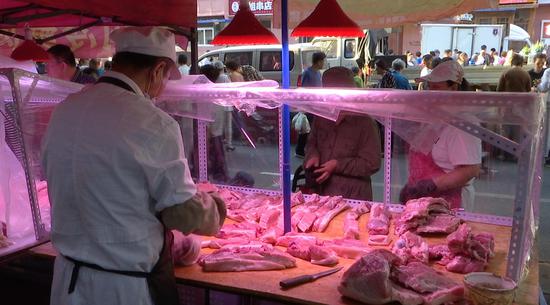
A pork vendor in Shenyang, Liaoning Province sees his prices rising due to natural disasters and more expensive soybean pulp-based pig feed. /CGTN Photo
Three months since the start of US-China trade friction, the ripple effects on Chinese consumers may not be as bad as previously thought.
A pork vendor in northeastern Chinese City of Shenyang is asking for an extra two yuan, or 30 cents, per kilogram of pork versus two months ago. The vendor suggested that the increase could be traced back to higher prices for soybean pulp based pig feed, but it is not the only reason.
"The swine flu outbreak earlier also pushed up the price -- but that's cooling down now," the pork vendor told CGTN.
China imposed 25 percent retaliatory tariffs on US soybeans on July 6. That pushed up costs for soybean products. Some analysts predict, for each 10 percent increase on soybean prices, products like pork and tofu could see a 1 percent rise.
While effects of the trade friction are ripping into farmers markets, consumer sentiment is still intact. Many Chinese believe the trade friction has not hit their shopping baskets.
"I don't think the trade friction is affecting producers' prices. Not sure if it will affect more expensive goods though," said one consumer.
"I don't believe the trade friction is the main reason for inflated prices on agricultural products. A depreciating Renminbi might affect prices, but not so fast," another added.
On the contrary, US consumer confidence has been slipping. According to the University of Michigan’s Consumer Sentiment Index, US consumer confidence has been in decline -- down five points compared to the first quarter of 2018 -- missing forecasts.
“Pretty soon, people are going to realize that the people they put in the White House are actually...eventually hurting them in real dollar sense,” said Professor John Gong from the University of International Business and Economics.
Before returning to Beijing and joined UIBE, Professor Gong had studied and worked in the US for two decades. He said that Chinese exports has been the main reason why the US could keep its inflation low in the past and the US relied much more on Chinese goods than vice-versa, and the US has been running out of options to sell to China.
“For example, if people are used to using sunflower oil instead of soybean oil. That's going to have a long term impact on American exports of agricultural products to China. I think Americans are already running out of exports to China,” said Professor Gong.

























